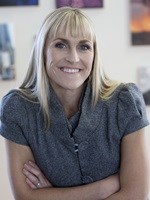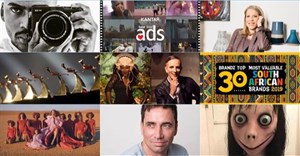[Digital Marketing] The next digital generation
Digital experts are starting to warn of a skills shortage in digital marketing implementation and strategy in South Africa due to the speed with which the local industry has evolved, as well as a 'poach policy' rather than a 'mentoring' mentality.
Global digital guru and chief digital officer of Fogg Experiential Design, Prakash Patel (@PrakashPatel_1), said the South African digital industry hasn't truly invested in the next generation.
"Our biggest problem in the digital industry in South Africa, is purely the 'poach poach' policy. I feel we should be a lot more responsible - we encourage people to leave their jobs after a year, to be poached, and we throw stupid money at them.
"They have no idea how to mentor or teach the next generation. We need to invest back into the industry. I still mentor people who are VPs of major companies in America. We need to start giving back in a big way," Patel reiterated.
Planning for the next digital generation is what advertising schools like the Red & Yellow School of Logic and Magic, bought by Quirk Education a couple of years ago, is doing through the expansion of its e-learning programmes throughout Africa and the launch of new digital marketing courses for 2017.
Quirk Education launched the first eMarketing training in South Africa through its successful e-learning courses in digital marketing, producing the first textbook for the South African market. When it bought Red & Yellow, the curriculum of the advertising and creative school was transformed to meet the needs of a future marketplace, as well as expand into the continent.

For 2017, the school hopes to launch two digital diplomas: they are busy with a proposal and curriculum to offer a Digital Marketing Advanced Diploma of one or two years through distance learning, through their online e-learning platform.
Explained Di Charton (@DiCharton), digital marketer and senior lecturer at Red & Yellow, "It will really give people a good understanding of what marketing in a digital world entails and how to go about that. It covers aspects from developing strategy, to understanding analytics and search and what it offers, understanding social, CRM, pulling together all of these various elements."
They are also busy submitting for a Digital Design full-time programme and an Advanced Diploma. "This is about how we relook at design and prototyping, finding solutions in a sphere where we are digitally focussed," says Charton.
The school will continue to offer their online short courses, including the 10-week 'Introduction to digital marketing', SEO courses, and corporate training in digital marketing, which is a growing demand from organisations.
Charton says she is now training not only the sales and marketing teams, but CRM, HR, and even finance departments at advertising agencies and at brands.
"We need people to think differently. I really do feel that in the last eight to 12 months, we have seen a much bigger investment starting to happen from business as a whole to upskill in terms of where we are going in digital. It bodes well in how we communicate with people. Digital technology is becoming the enabler to foster those relationships. That is gratifying."
She says the big shift has been from looking at digital as a media channel only, to integrating into the business. "It has taken a long time. Instead of being viewed as a media channel, it is the facilitator to foster relationships. Consumers don't just want products and services, but an experience and all the intangibles that go with that product."
She believes that there is a definite shift back to it being "all about the brand" and the authenticity of that experience, because so much of the interaction with a brand now takes place within this digital space.

Charton is excited because she is being called upon to also do CEO training on the digital side: "It becomes critical at a senior management level. You are not going to get digital transformation in the industry if you don't get buy in from the top. This is going beyond marketing. It started there - but digital offers a vast amount of information to look at business differently, to infiltrate further and deeper into the business... and we are seeing this shift.
"How we upskill people in the industry is key. We are marketing in a digitally enabled world. Right now we still treat digital as a separate entity, but our consumers don't see it differently, it is the new norm."
She agrees that it will take a couple of years to get organisations to understand that consumers move seamlessly between the online and offline space and become digitally-enabled businesses which are totally integrated with digital tools and apps and an understanding of how to behave in this digital world.
"The goal is to use digital's ability to track and understand behaviour to predict and also influence that behaviour. Right now we are still stuck in the tactics and various building blocks because people don't necessarily understand how they all fit together. We are in that stage of understanding the granularity to ultimately allow us to make the big picture thinking.
"In his book, 'Disrupting Digital Business: Create an Authentic Experience in the Peer-to-Peer Economy', Ray Wang spoke about this increasing need for 'digital artisans'. Even with buy in at every level, we will still need digital artisans to provide the craft and the real niched value... the specialists in those niche fields. What we are trying to do at Red & Yellow is create the elements and training that allow for the creation of digital artisans and create that big picture thinking."

About Louise Marsland
Louise Burgers (previously Marsland) is Founder/Content Director: SOURCE Content Marketing Agency. Louise is a Writer, Publisher, Editor, Content Strategist, Content/Media Trainer. She has written about consumer trends, brands, branding, media, marketing and the advertising communications industry in SA and across Africa, for over 20 years, notably, as previous Africa Editor: Bizcommunity.com; Editor: Bizcommunity Media/Marketing SA; Editor-in-Chief: AdVantage magazine; Editor: Marketing Mix magazine; Editor: Progressive Retailing magazine; Editor: BusinessBrief magazine; Editor: FMCG Files newsletter. Web: www.sourceagency.co.za.Related
Transforming professional development through lifelong learning 21 Oct 2024 Red & Yellow teams with Ogilvy Namibia to launch academy and empower creative talent 14 Oct 2024 Red & Yellow reveals new manifesto to be most creative business school in the world 7 Oct 2024 Shaping skills for the supply chain today and tomorrow 1 Oct 2024 Investing in upskilling: A key to business success and inclusivity 2 Sep 2024 Future proof your career and register for the Red and Yellow Creative School for Business’ BCom Virtual Open Day 29 Aug 2024































